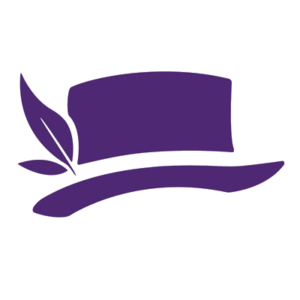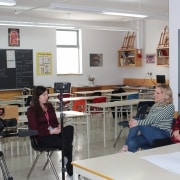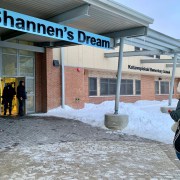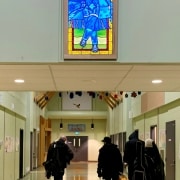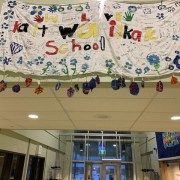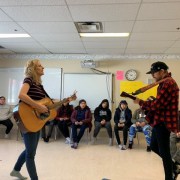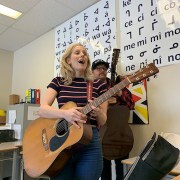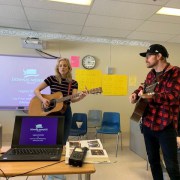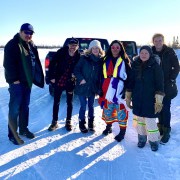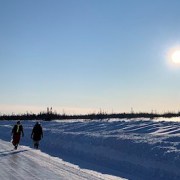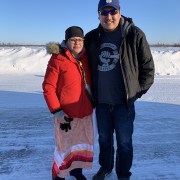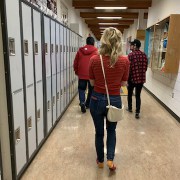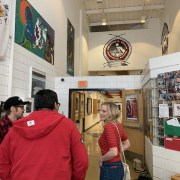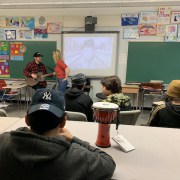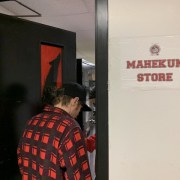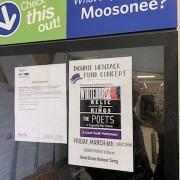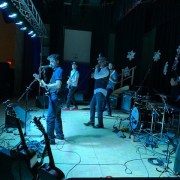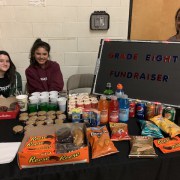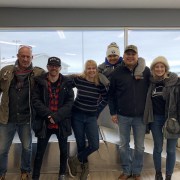Following a successful meeting on Dec. 5, 2020, the Educator Advisory Committee will meet again in March. Despite the difficult and unusual school year, our Legacy Schools have done great work in their efforts towards reconciliation. Their hard work and dedication has inspired our committee to continue to work as hard as possible – despite the circumstances – to improve and add to our Legacy Schools Program.
We’re extremely proud to introduce two new members to our committee. Our new committee members join us from the East Coast, where they have been actively supporting and participating in our Legacy Schools Program. Joy Skanes from Newfoundland and Christina Sylliboy from Nova Scotia will be bringing their fresh perspectives into our discussions, and we thank them for their dedication to our Fund.
Educator Advisory Committee Members for 2019-2021
Harriet Visitor
Anishinaabe First Nation, Teacher, Chanie Wenjack’s niece, DWF Board Member, Ontario
Christina Sylliboy
Vice Principal, We’koqma’q Mikmaw School, Nova Scotia
Joy Skanes
Teacher, Leary’s Brook Junior High, Newfoundland
Krista Sherman
Dakota Sioux – Standing Buffalo Saskatchewan, Teacher, Winston Knoll Collegiate, Saskatchewan
Sharon Shadow
Champagne and Aishihik First Nations, Department of Education, Yukon
Buffy Sainte-Marie
Piapot First Nation, Teacher, Activist, Musician, Hawaii
Danielle Root
Listuguj First Nation, Mi’kmaq Education Coordinator at Conseil Scolaire Acadien Provincial (CSAP), Mi’kma’ki
Lisa Prinn
Manager, Education & Activation, Gord Downie & Chanie Wenjack Fund, Ontario
Jon Patry
Assistant Principal, James Short Memorial (Early Development Centre, K-2), Alberta
Jessica Madiratta
Piapot First Nation, Teacher, Kitchener Community School (K-6), Saskatchewan
Jen Karpiuk
Métis, Teacher, Crescent Heights High School, Alberta
Jonah Hupfield
Anishinaabekwe, Martin Clan, Wasauksing First Nation
Indigenous Studies and Anishinabemowin 9-12, Near North District School Board, Ontario
Greg Halcrow
Pimicikamak Cree Nation, Director of Education, Cross Lake Education Authority, Manitoba
James Groat
Tuscarora, Consultant Indigenous Education (K-8), District School Board of Niagara, Ontario
Sheila Francis
Mi’kmaq, Director of Education, Pictou Landing First Nation School, Nova Scotia
Kelly Fontaine
Sagkeeng First Nation, Teacher, Sagkeeng Anicinabe High School, Manitoba
Andrea Eby
Teacher, St. Bonaventure School (K-6), Ontario
Corinne Chappell
Lennox Island First Nations, Colonel Gray High School 9-12, Prince Edward Island
Brad Baker
Squamish Nation, District Principal, Indigenous Education, Safe Schools and Careers, North Vancouver School District K-12, British Columbia
Trina Allinotte
Teacher, Kitchener-Waterloo Collegiate Institute 9-12, Ontario
Pearl Achneepineskum
Anishinaabe First Nation, Chanie Wenjack’s sister, Ontario
We are currently still seeking members from Nunavut, Quebec, the Northwest Territories and Labrador. If you are from these regions you can apply here.
Appointment to the Committee is one two-year term, and when applicable, a second term may be added. Meetings will typically be held virtually four times per year.
The Educator Advisory Committee for Legacy Schools will advise current and future programs and participate in their development and quality assurance as needed. Committee members will also assist in identifying resources, including guest speakers, field placement, partnerships and various opportunities to further Legacy Schools programming.
Educator Advisory Committee members are ambassadors and liaisons between DWF, schools, students, educators and the community.
The Gord Downie & Chanie Wenjack Fund Educator Advisory Committee for Legacy Schools consists of members of First Nations, Métis, Inuit, and non-Indigenous educators. They advise on educational resources and program development for Legacy Schools to help ensure that the unique interests, rights and perspectives of Indigenous peoples are recognized and implemented in schools and communities throughout Canada. Members will also help assess and evaluate the impact of Legacy Schools, furthering DWF’s mission to improve the lives of Indigenous people by building awareness, education, and connections between all people in Canada.








